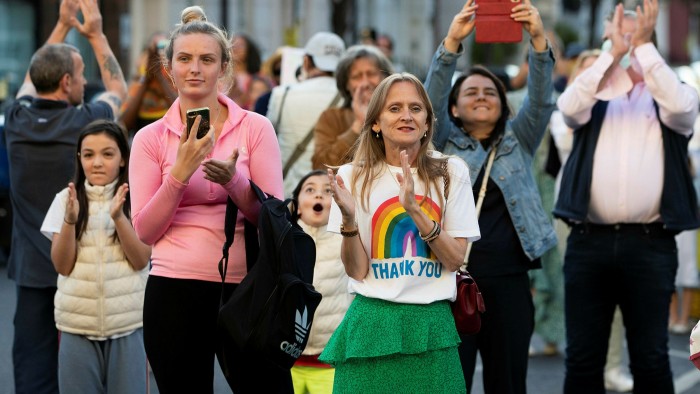How should we assess value?

Roula Khalaf, Editor of the FT, selects her favourite stories in this weekly newsletter.
Mark Carney, the former central banker, asks why we esteem financial value over human values in this year’s BBC Reith Lectures.
One theme is our slow response to climate change. Mr Carney says we favour short-term thinking over long-term strategy partly because we do not properly recognise the value of preserving the planet. We fail to assess the Amazon rainforest with the same rigour that we approach Amazon the company because we place more focus on the present than the future.
Many companies, driven by a singular focus on maximising efficiency and profits, fall into this trap but the pandemic has presented a moment for leaders to rethink first principles. Mr Carney’s argument is a useful lens that managers can use to better understand value in their organisations.
Two very different stories from the coronavirus crisis illustrate how.
The first is from China, where much of the country was under lockdown after the virus was discovered. For millions of Chinese stuck at home, food delivery drivers became heroes for maintaining supplies through quarantine. When couriers complained about the stress of being penalised for missing strict time limits imposed by services such as Meituan and Ele.me, a consumer backlash forced the companies to tweak their algorithms and extend the deadlines.
The second example is from the UK, where Britons took to the streets and applauded healthcare workers during the first stages of the pandemic. The collective experience boosted the nation’s spirits and felt like recognition for a buckling NHS.
Both of these stories display a genuine appreciation but did they lead to meaningful change for the lauded?
Chinese delivery drivers are still in demand but remain under intense pressure, as is typical for gig economy workers who are often poorly paid and live precarious lives governed by an algorithm. “The rewards are light but the punishments are always heavy,” one Chinese courier told NPR last month. Some drivers have gone on strike or protested against working conditions.
In the UK, some healthcare workers suggested the applause was nice but did nothing to deal with the underlying pressures they face. Stop clapping, they said, start managing the NHS and staff better, and take the pandemic seriously. Hospitalisations in England last week surpassed their peak in April, during the first wave of the pandemic.
These stories highlight how understanding value matters. There has been lots of public appreciation for work done under extreme circumstances but not enough done to address fundamental problems that have been amplified by the crisis.
Some managers, however, have gone deeper.
One executive at a midsized global company said that not being able to travel or work in the office forced her to put more trust in lieutenants. But it also highlighted who she was less able to trust or rely upon, revealing which staff added the most value to the organisation. Such insight has been critical as she thinks about how to retool the business beyond the pandemic.
Roger Martin, the management thinker, believes organisations need to become more human. For too long, he says, companies have been driven solely by profits and efficiency, and have turned their staff into automatons by stripping them of decision-making authority.
He points to the example of Costco, the retailer, which pays its staff higher wages than its peers and gives them more autonomy. “They have a business system set up to give these people important jobs and decision making. If you do that, it’s no problem to let them make more. But you can’t if you turn them into a drone.”
Rita Gunther McGrath, a professor at Columbia Business School, argues for more regulatory pressure, such as forcing boards to include worker representatives as in Germany. But she adds that investors need to challenge CEOs more effectively. “Unlike the postwar situation, in which the job of company leaders was seen to create good jobs and a thriving middle class, they have not been questioned sufficiently, in my view, of the impact of their decisions on regular people,” she says.
This argument reflects a view advocated by Mr Carney, who calls for a company’s approach to global warming to be as much a determinant of its value as credit worthiness. The climate crisis is unprecedented, however, so the past is not a good predictor of the future and different solutions are needed.
The same could be said of Covid. The crisis offers a chance to radically reassess value. Asking the right questions is a start.
Andrew Hill returns next week
Comments